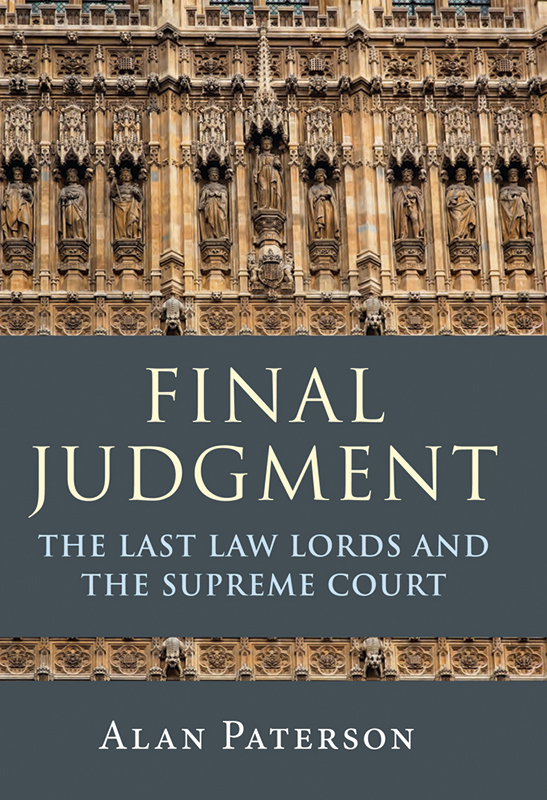
"The book mines this rich vein extremely effectively, wherever relevant assessing what has changed both over the past 40 years since Paterson’s earlier book"
Author: Alan Paterson
Publisher: Hart
ISBN: 9781849463836
Price: £25.00
Professor Alan Paterson’s new book Final Judgment—The Last Law Lords and the Supreme Court is an admirably researched, readable and fascinating addition to the growing literature on how judges go about their work. His theme is judicial decision-making as a social process based on the different “dialogues” in which the judges engage.
The dialogues range from the traditional (with counsel), to the novel (with judicial assistants), from the near (the Court of Appeal) to the far (other supreme courts), from the theoretical (with academics) to the practical (the law reporters), from the open (with Parliament) to the forbidden (with government). Some, such as that with precedents may be with the dead. Some are more symbolic than real, eg with Parliament or the Executive. Some are with the future, eg a dissent.
Rich vein
Paterson subjects








